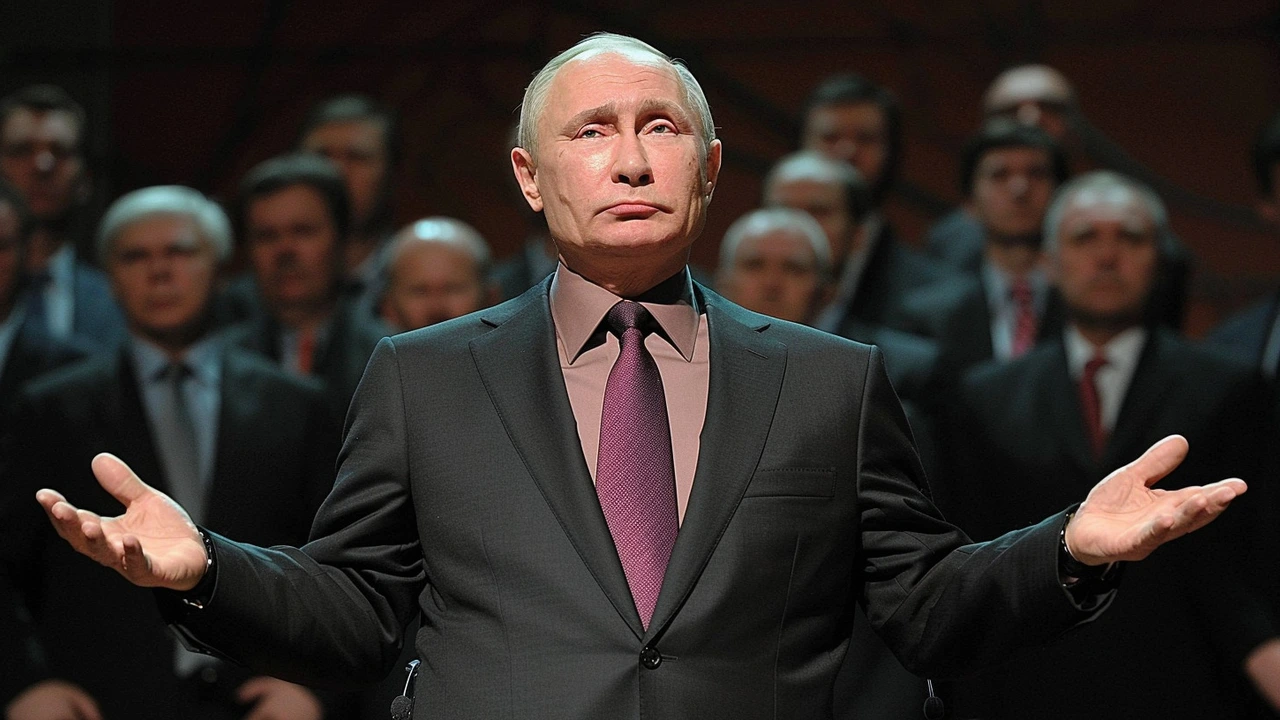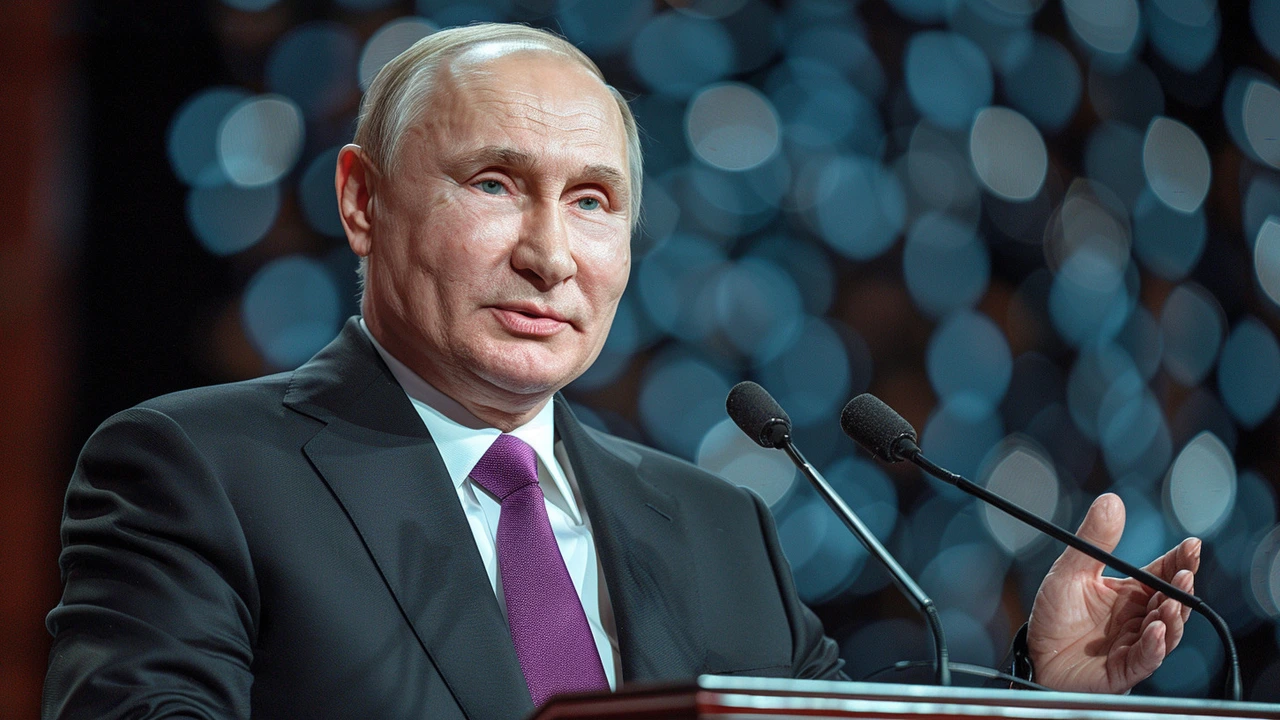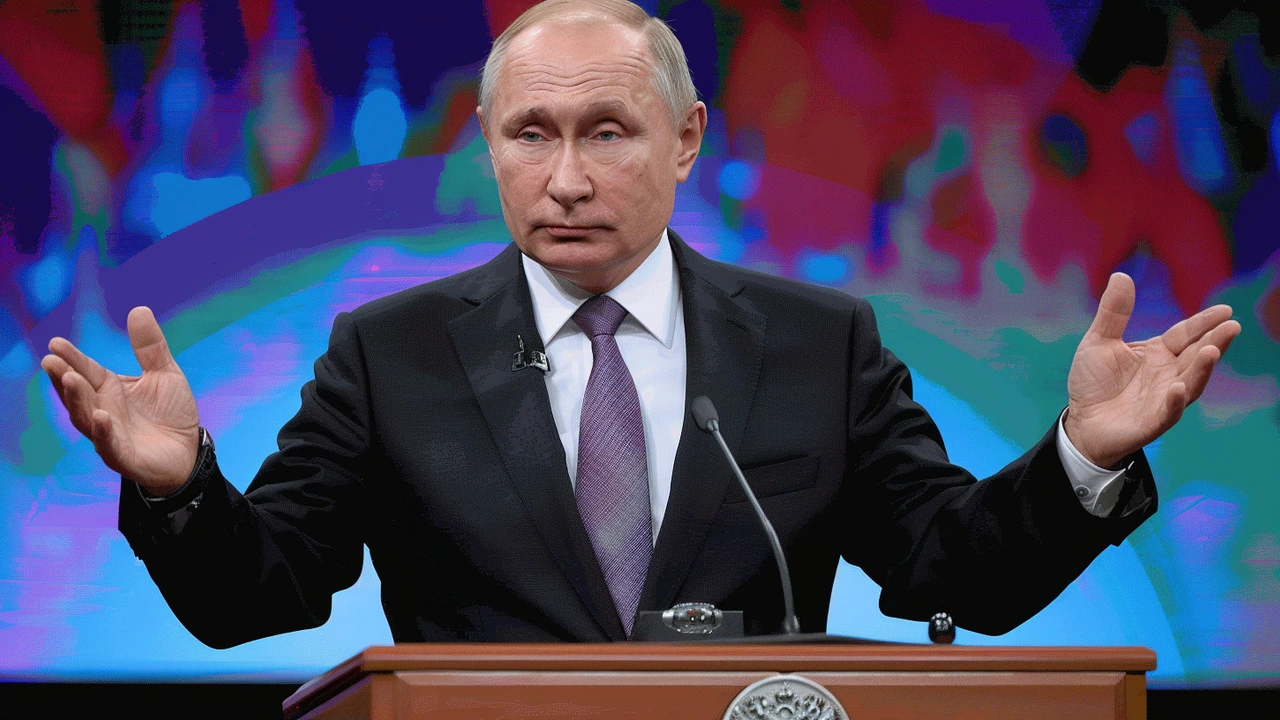Putin Accuses UK of Direct Involvement in Ukraine War
Addressing the St. Petersburg International Economic Forum, Russian President Vladimir Putin made severe allegations against the United Kingdom for its purported direct interference in Ukraine's ongoing conflict. Putin claimed that the UK’s military is involved in targeting Russian positions, a move he labeled as not only provocative but also critical to the escalating regional tensions. Putin's statements are seen as an escalation in rhetoric, reflecting his growing frustration with Western involvement in the conflict.
Putin's allegations did not stop at the UK. His accusations extended to other Western nations, including the United States and France, which he claimed were also providing direct military support to Ukrainian forces. According to Putin, these countries are enabling Ukraine to carry out long-range missile strikes on Russian targets, and Ukrainian servicemen are not capable of operating high-precision weapons like the British Storm Shadow or American ATACMS missiles without external assistance.
Threats of Retaliation and Weapon Supply
In response to what he perceives as direct involvement from the UK and other Western nations, Putin vowed to take harsh retaliatory measures. He explicitly threatened to supply advanced weaponry to those he described as Britain’s enemies, though he did not specify which countries these might be. This threat of arming hostile forces is intended to send a clear message: any perceived interference by Western nations, particularly the UK, will be met with severe consequences.
Putin’s warning also extended to the broader Western coalition supporting Ukraine. He suggested an 'asymmetrical response' might be forthcoming if long-range missile systems supplied by the West continue to be deployed by Ukraine against Russia. This raises concerns about a potential escalation in the conflict, as the Russian leader has hinted at using a range of unspecified actions against the West's military support.

Nuclear Threats and Strategic Doctrine
In a chilling reminder of the stakes involved, Putin reiterated Russia's nuclear doctrine, which allows for the use of nuclear weapons under certain conditions. This doctrine, established in 2020, states that Russia reserves the right to use nuclear weapons in response to any attack involving nuclear or other weapons of mass destruction, or when conventional attacks threaten the country's very existence.
The Russian President emphasized that this nuclear threat should not be taken lightly. While some may dismiss it as saber-rattling, the implication is clear: Russia is prepared to escalate the conflict to extremes if it feels its sovereignty or territorial integrity is under dire threat. This statement underscores the serious nature of the conflict and the potential for a far-reaching and devastating military escalation.
Impact on Russian-German Relations
Aside from the UK, Putin specifically called out Germany for its decision to permit Ukraine to use German-made weapons against Russian targets. He warned that such actions would 'definitively destroy Russian-German relations.' The fallout from this could be significant, as Germany has been one of the more influential European nations providing military and diplomatic support to Ukraine.
Putin's comments point to a potential destabilization of relationships that have been maintained despite various geopolitical tensions. Germany’s involvement could lead to further diplomatic isolation for Russia as it battles Ukraine, potentially tipping the scales in favor of a broader European consensus against Russian actions in Ukraine.

The Bigger Picture
In the broader context, Putin's statements at the St. Petersburg International Economic Forum highlight the complexity and the high stakes of the ongoing Ukraine war. His accusations and threats underscore a geopolitical chess game where each move by Western nations and Ukraine is under intense scrutiny and could prompt disproportionate responses from Russia.
This period is characterized by intense diplomatic and military maneuvering, with countries on both sides of the conflict weighing the ramifications of their actions. Putin’s remarks also spotlight the pivotal role of international forums in disseminating state rhetoric and shaping global perceptions, demonstrating how such platforms are used to signal geopolitical intentions.
Understanding the nuances of these accusations and the potential repercussions can provide a clearer picture of the unfolding events. As tensions continue to mount, the importance of diplomacy, quick conflict resolution, and strategic decision-making becomes even more pronounced. The world is watching closely, hoping to prevent a further slide into a broader and more destructive conflict.
Conclusion
President Vladimir Putin's dire warnings and their accompanying accusations against the UK and other Western countries mark a significant moment in the ongoing conflict in Ukraine. His threats of retaliation, whether through increased support to hostile nations or an asymmetrical response, underscore the potential for a dangerous escalation. Moreover, the repeated emphasis on nuclear readiness serves as a stark reminder of the risk of catastrophic consequences.
As the situation evolves, it is crucial for the international community to engage in proactive diplomacy and conflict mitigation. What happens next could very well determine the stability of the region and potentially the world. The stakes are undeniably high, and every move on this geopolitical chessboard must be considered with a keen understanding of the potential repercussions.


Comments (12)
Putin's rant is just more hot‑air, nothing new.
It’s easy to get lost in the headlines, but the real story is about diplomacy failing. Putin’s threats sound louder than they actually are, especially when the West keeps talking about peace. The UK’s role, if any, is more about political signaling than actual battlefield control. Ukraine still needs supplies, but there are channels to manage that without sparking a wider war. We should encourage all parties to step back from the brink and focus on negotiations. A calm, measured approach will do more for stability than any new weapons shipment.
The Kremlin’s bravado is finally catching up with reality. They point fingers at the UK while ignoring their own aggressive posturing. It’s absurd to claim that British Storm Shadows are the sole reason for Russian casualties. Every side is playing a dangerous game of blame, but the only winners are the profiteers of war. If Putin truly believes an "asymmetrical response" will scare the West, he’s underestimating the resilience of democratic societies. Let’s be clear: empty threats won’t change the ground realities, only concrete diplomacy might.
While strong words make headlines, the real solution lies in dialogue. Even if Russia feels encircled, escalating the arms race only burdens civilians on both sides. A balanced approach, perhaps through confidence‑building measures, could reduce the temptation for retaliation. It’s essential for the UK and its allies to keep communication channels open, not shut them down with grandstanding. If we focus on humanitarian corridors and cease‑fire talks, the pressure cooker might finally vent. History shows that wars end when leaders choose negotiation over nukes.
Your optimism is admirable, but it glosses over blatant violations of international law. Putin’s references to nuclear doctrine are nothing short of intimidation, and they must be called out plainly. The UK’s involvement, however limited, has a legitimate basis in defending sovereignty. Ignoring that fact only feeds the narrative of victimhood the Kremlin likes. Therefore, a balanced critique is necessary: condemn reckless escalation while acknowledging lawful support. Anything less is intellectual dishonesty.
Interesting read, though I think the media might be over‑dramatizing the threat.
Ah yes, yet another "strategic doctrine" buzz‑saw. You can almost hear the NATO PR‑team chanting “deterrence” in the background while sipping their artisanal lattes.
Really, this entire scenario is a textbook case of misallocation of resources; you have the West, perpetually inflating budgets, the Kremlin, perpetually overreacting, and the media, forever amplifying; moreover, the whole narrative is riddled with hyperbole, sensationalism, and a distinct lack of nuanced analysis!!!
When I first saw Putin’s speech, I thought I was watching a blockbuster trailer, not a diplomatic briefing. The way he paints the UK as the puppet master behind every missile launch is pure theater, but the audience is global, and the stakes are terrifyingly real. He claims the Storm Shadow is the only thing polishing Russia’s armor, yet the same missiles were once touted as the pinnacle of Western engineering. The irony is delicious: the very weapons he condemns are designed by the same coalition he blames for the chaos. He throws out the term "asymmetrical response" like a magician pulling a rabbit out of a hat, hoping no one will ask what that really means. Meanwhile, diplomats across Europe are nervously sipping coffee, because any misstep could ignite a chain reaction no one wants. The mention of nuclear doctrine is a classic move – a reminder that the world still lives under the shadow of mutually assured destruction. But let’s be honest, the real danger isn’t a single launch; it’s the endless spiral of rhetoric feeding policy. In the halls of St. Petersburg’s Economic Forum, the echo of cash registers is louder than any artillery, indicating that economics and war are now dancing a waltz. The UK, Germany, and the US are all stuck in a paradox: they must support Ukraine while avoiding a direct clash with Russia. Every new weapon shipment is counted not only in kilos but in diplomatic capital. Putin’s threat to arm Britain’s enemies could be interpreted as a subtle invitation to further destabilize regions already teetering on the brink, like the Middle East or parts of Africa. Even if the Kremlin never follows through, the suggestion alone is enough to make allies rethink their security calculations. The Western press has already framed this as a new cold war, and while that’s a dramatic headline, it does capture the essence of the growing distrust. People on the streets in London and Moscow alike wonder if their governments are playing chess or juggling swords. History will judge this moment by whether cooler heads prevailed or whether the world slipped into a wider conflagration. In any case, the drama here is not just political; it’s human, with families watching newsfeeds, soldiers in dugouts, and children asking why the sky has become a battlefield. Let’s hope the next paragraph of this saga writes a different ending – one where dialogue outshines deterrence.
Wow, that was an epic monologue. Loved the cinematic flair, but let’s cut to the chase: diplomacy wins over melodrama every single time. If anyone can turn this drama into a constructive peace talk, it’s the negotiators behind the scenes. Keep the popcorn ready, but don’t forget the real agenda.
Enough with the theatrics. Focus on facts.
The rhetoric is loud, the solutions are silent.